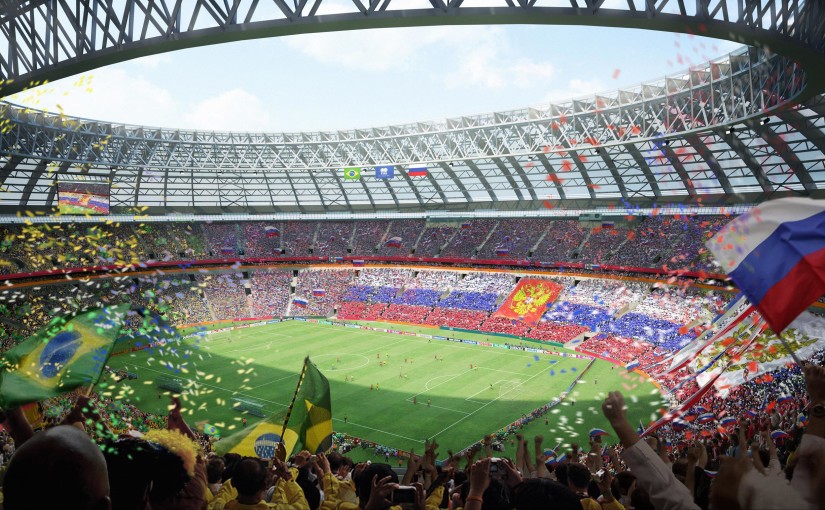By Mark Baber
April 14 – The Russian government has extended their import substitution policy to construction projects for the 2018 FIFA World Cup, in response to fall of the rouble, oil price fall and Western sanctions.
Prime Minister Dmitry Medvedev announced the new policy on Monday saying, “it is necessary to modify the contracts on stadiums projects concerning the replacement of foreign-made equipment and materials with Russian equivalents.”
The Sports Ministry, in charge of the construction of new soccer stadiums, will now be allowed to change the price, timing and volume of works without inviting new tenders in a move which will be a blow to foreign companies seeking to benefit from Russia’s building boom, which includes 300 infrastructure projects for the 2018 World Cup in 31 cities.
The ruble has been performing well of late, as the Russian economy defies wishful thinking by some anti-Russian analysts and continues to expand. Many sectors of the economy, including the energy sector and other exporters are benefitting from the lower value of the ruble whilst other sectors, including agriculture, are benefitting from import substitution programmes.
The Russian government has committed itself to ensure there are no cost increases to World Cup budgets, with Sepp Blatter having been assured “there is no intention to ask FIFA to change anything in the pattern and the program of the World Cup and we trust Russia will find a solution.”
The new emphasis on local sourcing of materials should also prove a major benefit as Russia seeks to source materials locally as required by the principles of environmental construction and build a cohort of local design organisations and real estate developers versed in globally recognised green construction standards.

